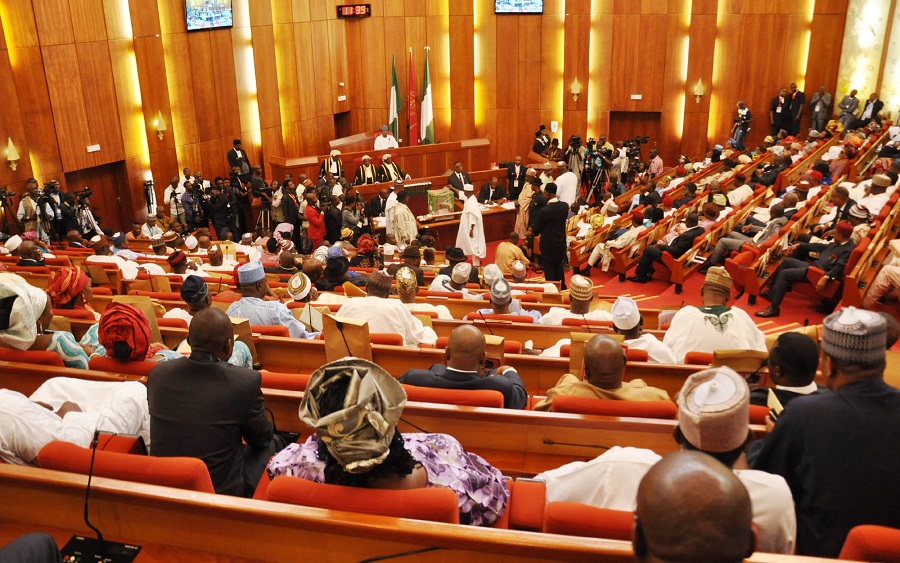The Senate has raised an alarm that Nigeria’s total debt profile would stand at N33 trillion, if President Muhammadu Buhari got approval for the $22.7 billion foreign loan request.
Deputy Chairman of Senate Committee on Local and Foreign Debts, Senator Muhammad Bima Enagi, pointed this out while speaking at the one-day public lecture organized by the National Institute for Legislative and Democratic Studies ( NILDS), on Public Debt in Nigeria: Trend sustainability and management.

Enagi noted that borrowing had always served as veritable financial platforms for many developing countries of the world in running their economies, on the condition of judicious use of loans for the intended projects.
Unfortunately, the realities on ground including the required infrastructure and the debt accumulated between 2006 till date did not show any correlation, he observed.
He added that about 68% of the N26 trillion owed as at September 2019 were domestic debts, while foreign debts accounted for the rest.
“With the recent approval of the 2016-2018 External Borrowing Plan, the total debt stock would be about N33 trillion and 21% Debt/GDP ratio.
“What do we have to show as a people for these huge debts accumulated over the last four decades or so?” he queried.
(READ MORE: Debt profile: Bankruptcy looms, Obasanjo warns FG )
According to him, stopping this trend would require the national assembly to monitor the executive on prompt utilisation of new loans for the specified purposes. This is the only way to gradually reverse the current situation where the annual debt servicing had made it impossible to provide basic amenities and infrastructure without resorting to more borrowing.
His talk came shortly after the Director-General, Debt Management Office, DMO, Mrs Patience Oniha, had expressed fears that the global economic effects of the Coronavirus pandemic could frustrate Nigeria’s attempts to service its debts appropriately.
According to Oniha, Nigeria’s debt is sustainable as the total Debt-to-GDP Ratio was within a 25% limit, even lower than the 56% advised by the World Bank and IMF. The actual Debt Service to Revenue Ratio has, however, been high at over 50% since 2015, an indicator of lower revenues and higher debt service figures.
What you should know: The Nigerian senate, penultimate week, approved the $22.7billion foreign loan request by President Muhammadu Buhari.











